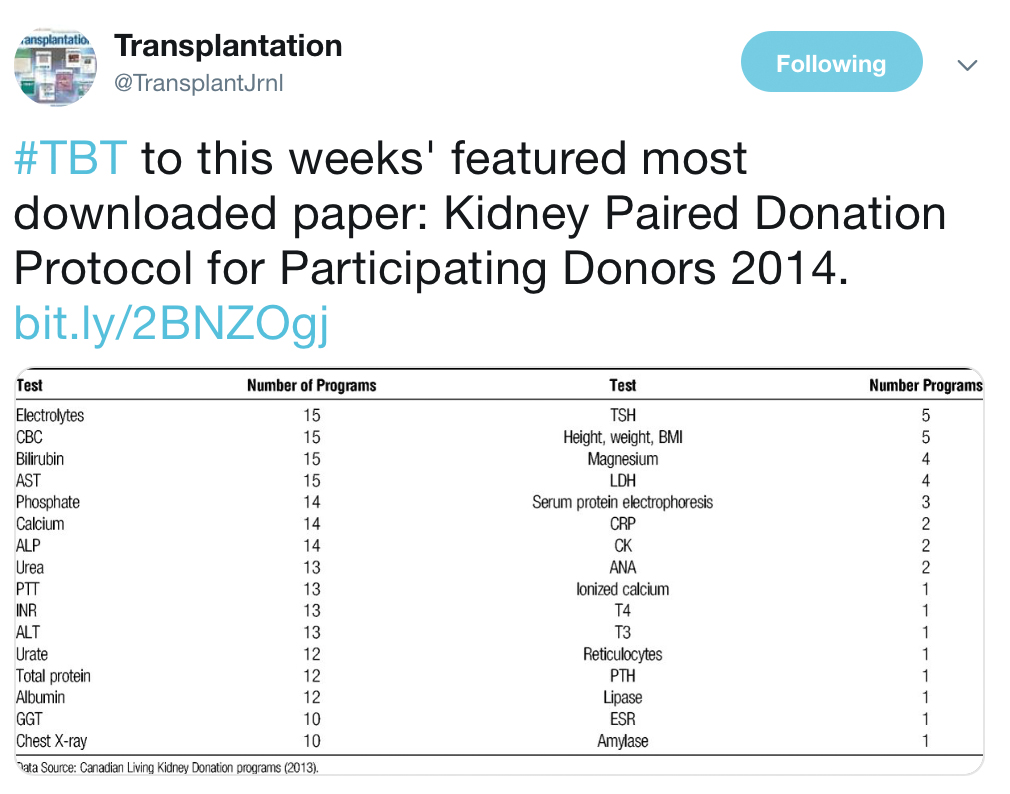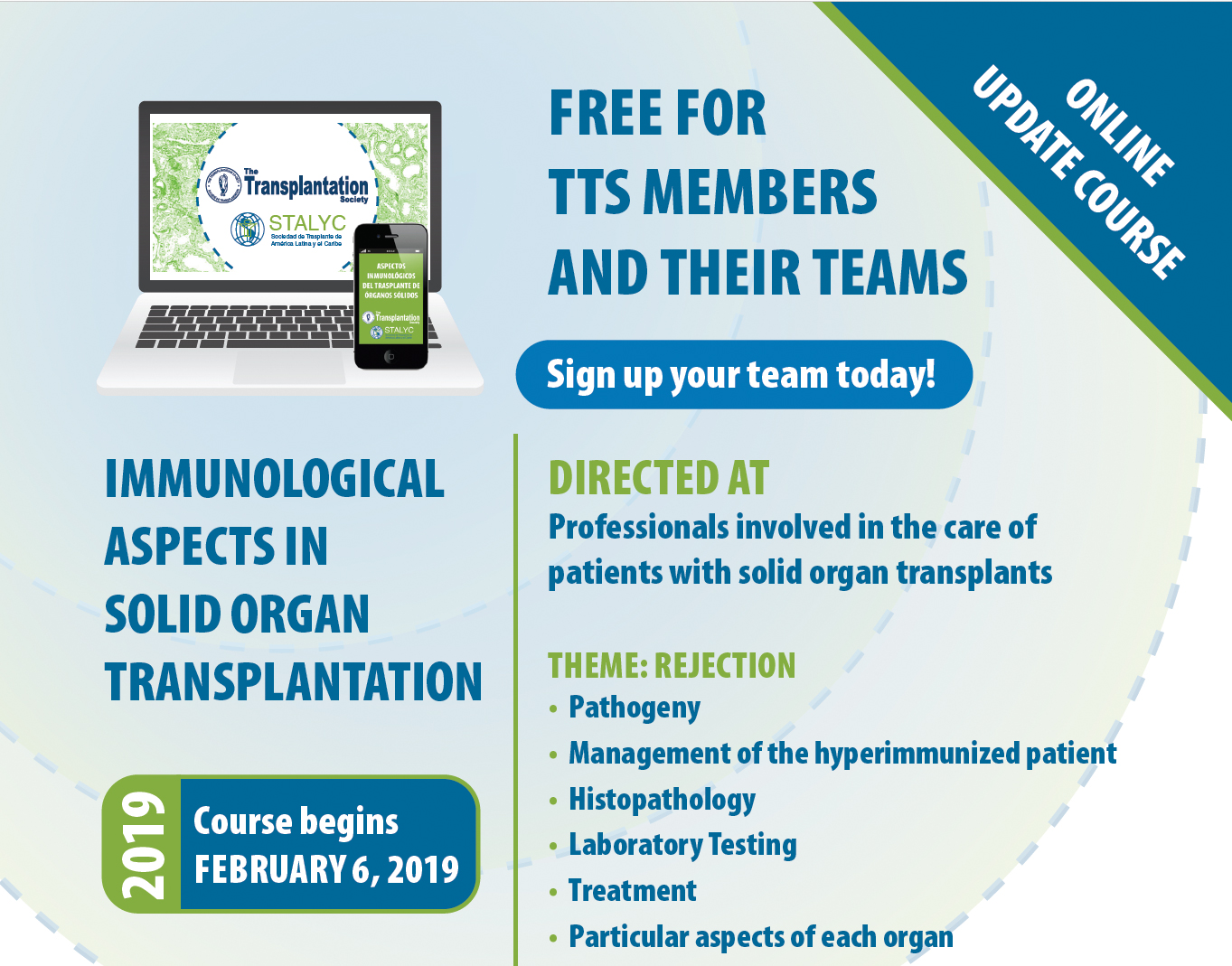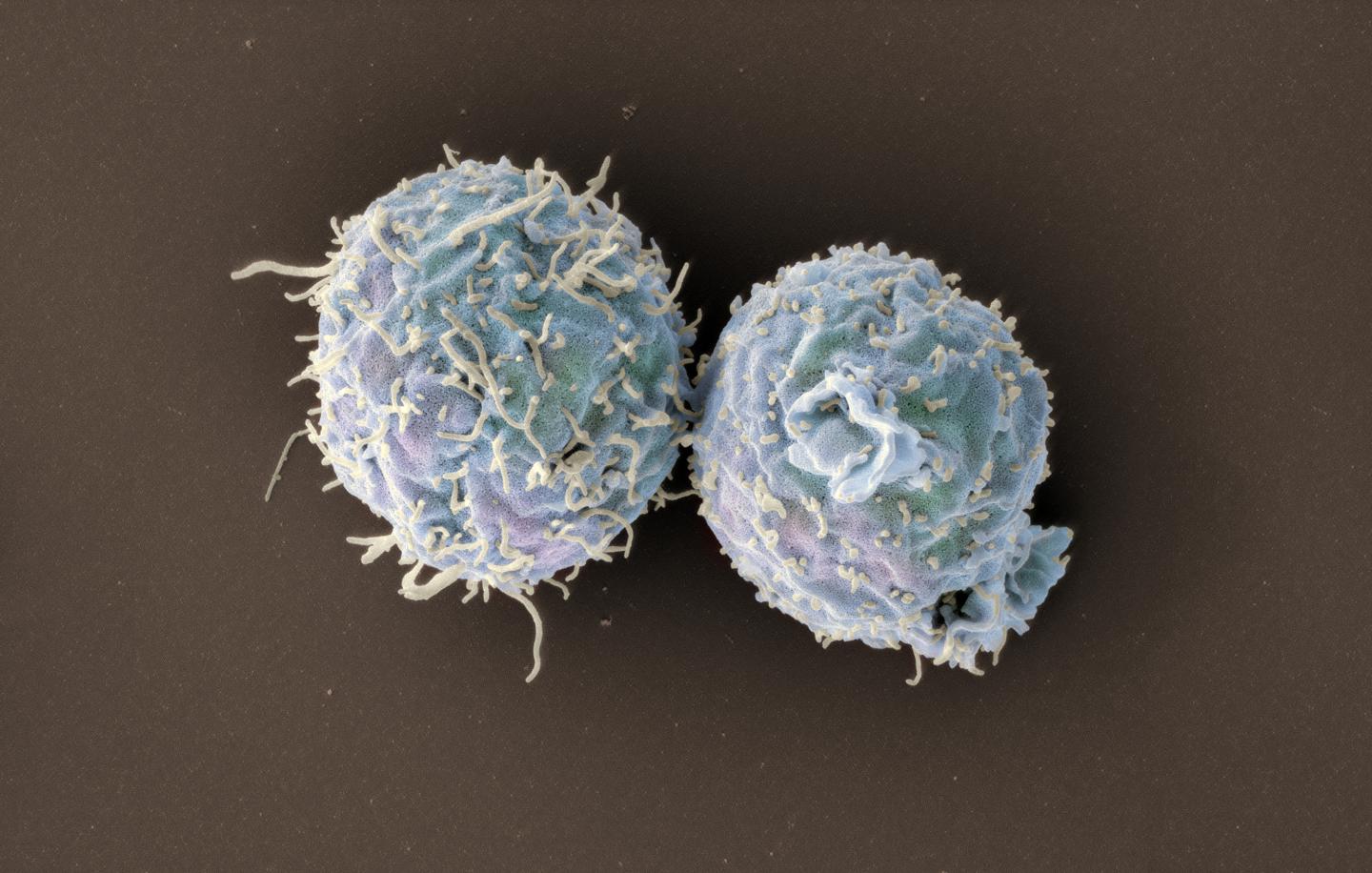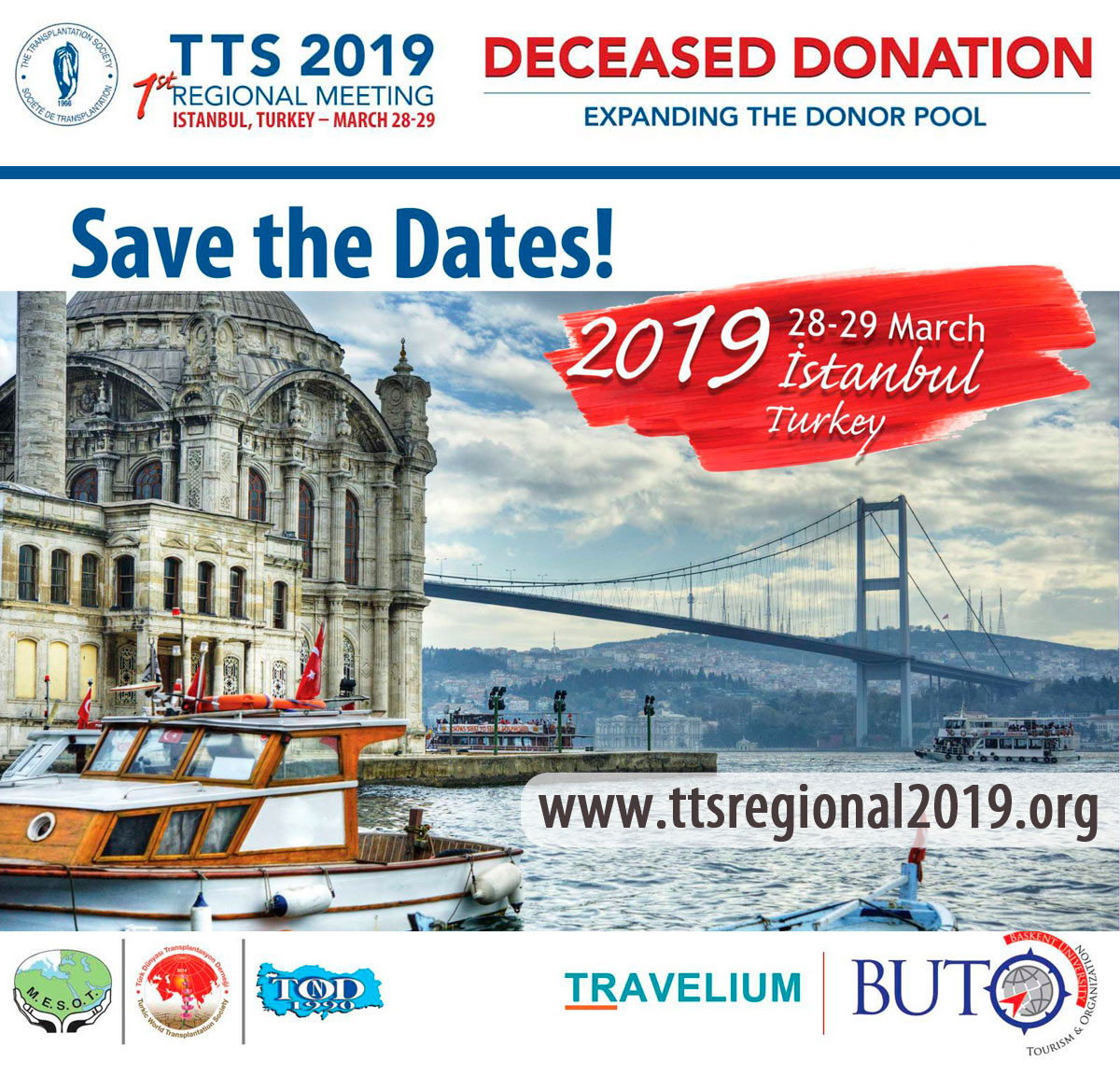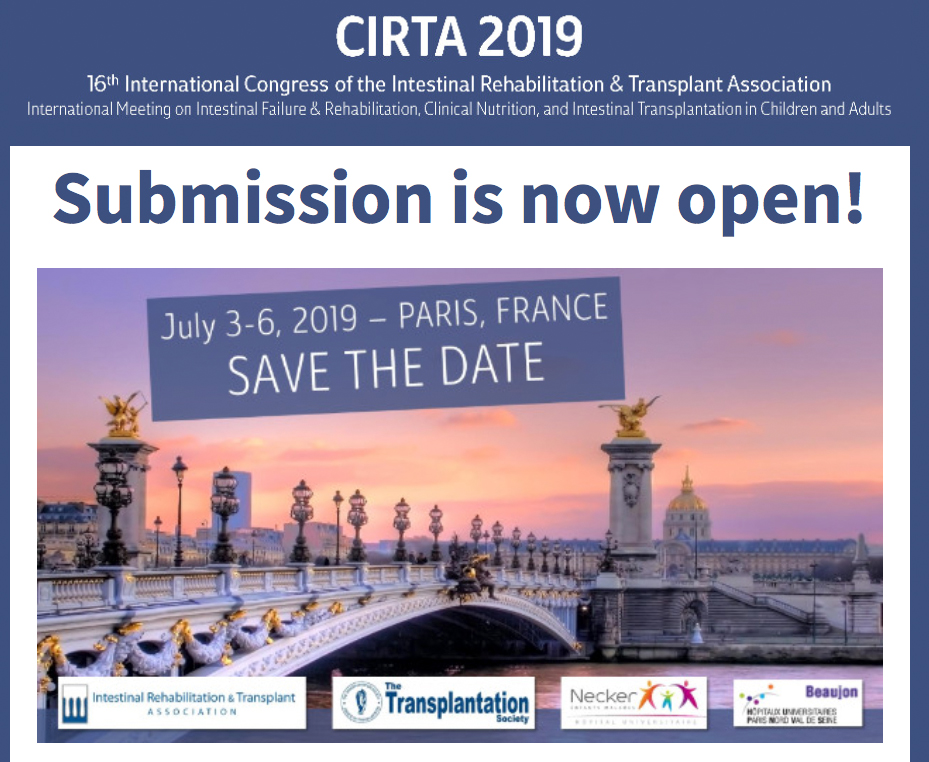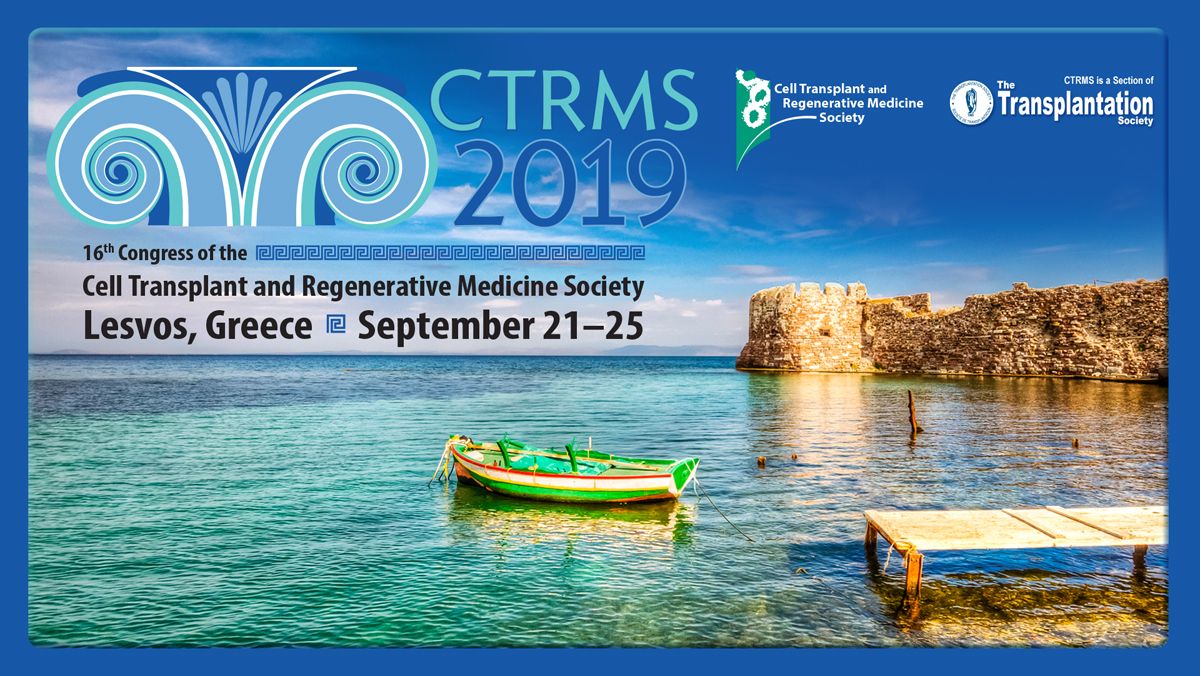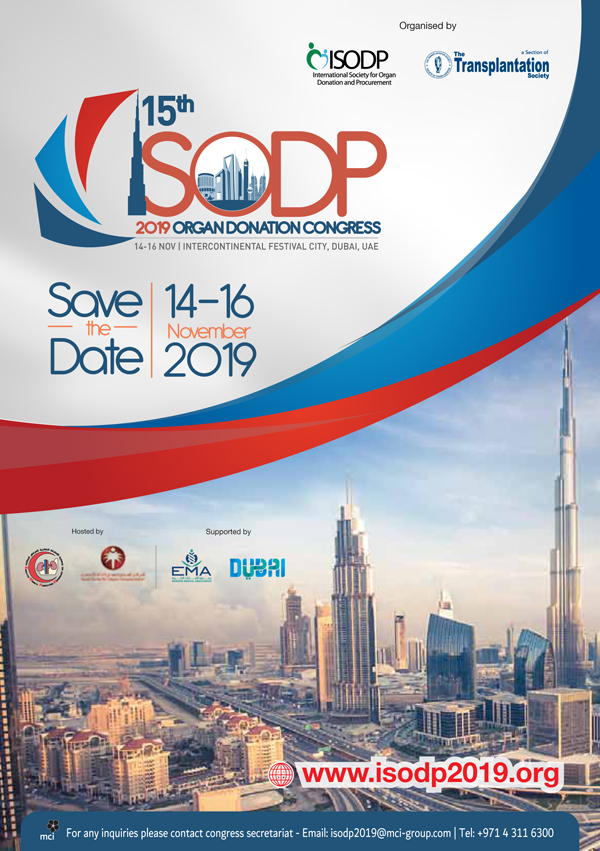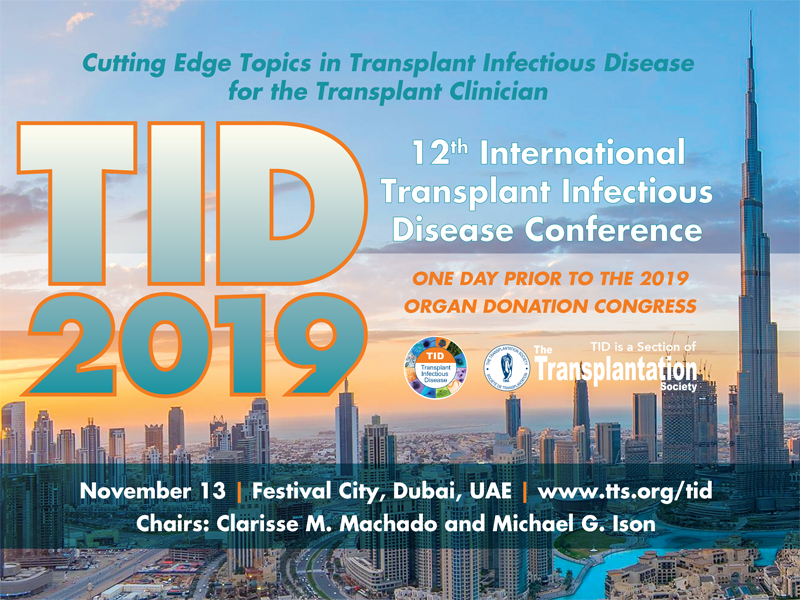
Announcement - New Liver Series Webinar
TTS Education Committee Webinar Series "Trends and Challenges in Liver Transplantation"
TITLE: Machine Perfusion in Liver Transplantation
Wednesday, January 30, 2019 - 11:00 AM EST (Montreal time)
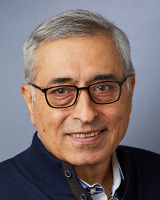 |
Organizer and Moderator: Sukru Emre, MD Professor of Surgery (Transplant) and of Pediatrics, Yale University New Haven, CT, USA |
 |
Discussant: Paolo Muiesan, FRCS, FEBS Professor and Consultant HPB Surgery & Liver Transplantation Queen Elizabeth & Birmingham Children's Hospitals Birmingham, UK |
 |
Discussant: Peter Friend, MD, FRC |
TRANSPLANTATION - HIGHLIGHTED ARTICLE
Dr. Karen Keung, Editorial Fellow, Transplantation
Donor Urinary C5a Levels Independently Correlate With Posttransplant Delayed Graft Function
Schröppel Bernd, Heeger Peter, Thiessen-Philbrook Heather, et al.
2019 Jan. doi: 10.1097/TP.0000000000002494
In kidney transplantation there is accruing evidence of the pathogenic role of the complement cascade in ischemia-reperfusion injury and delayed graft function (DGF), and that kidney injury can initiate in the donor before nephrectomy. In this prospective, multicenter, observational cohort study, the authors assessed whether concentrations of the anaphylotoxins C3a and C5a in donor urine obtained at the time of organ procurement correlated with early post-transplant outcomes in their recipients. There was a significant association between donor AKI and urinary C5a, with threefold higher median C5a concentration in donors with AKI stage 2/3 versus those without AKI. Higher levels of C5a was also demonstrated in recipients with DGF versus those without. For the donors with AKI, C5a was independently associated with recipient DGF (relative risk, 1.31; 95% confidence interval, 1.13-1.54), but this association was not observed in donors without AKI. Urinary C3a was not associated with donor AKI or recipient DGF. These findings suggest the potential utility of C5a measurements in donor urine retrieved at the time of procurement to assess the risk of developing DGF in the recipient.
TTS-IRTA Webinar - Updates in pediatric intestinal failure and transplant: Educational strategies and neurodevelopmental assessment
Tuesday, January 22, 2019 - 11:00AM EST
| Speaker: |
Mary Gallotto, RN BSN, CPN |
 |
||
| Speaker: |
Colleen Nespor, BSN, MSN, |
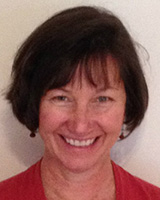 |
||
| Speaker: |
Stephanie So, MSc. PT, Physiotherapist |
 |
||
| Moderator: |
Beverly Kosmach-Park, DNP, RN, FAAN |
 |
||
Webinar Summary:
This webinar will focus on aspects of patient care outcomes within intestinal rehabilitation and transplant. The topics presented will provide an overview of successful educational interventions for caregivers who are learning central line care and home TPN administration. Additionally, the webinar will include an overview of neurodevelopmental outcomes in this patient population. This webinar is being presented by the Allied Health Committee of IRTA.
FREE Online Course for TTS MEMBERS AND the MEMBERS OF THEIR TEAMS
Early Registration is NOW OPEN - IT Just Takes ONE MINUTE TO REGISTER!
Following up on the great success of the Course in Spanish and Portuguese, we have decided to expanded the course to english AND made it available for free to participate in for TTS Members and those in their transplant teams.
Over an eight week period, featuring 20+ online presentations, we will guide you through all the important aspects in immunology.
The course was designed to allow participants to learn at their own pace and time during each week of the course. You can post questions and tutors will respond to them.
Leadership Series Videos Now Available

TTS Transplantation Leadership Series webinars were designed to encompass necessary topics to assure success within key business practices used by medical professionals. The Series was part of a 6-month Leadership program completed in the Spring of 2018. Due to the valuable content of these webinars, TTS has decided to share them with TTS members (Requires TTS Member Login).
In the News
'Game Changer': Researchers Can Now Grow Stable Blood Vessel Mini-Organs In the Lab
Illustration based on original data of vascular organoids, lab-made human blood vesselsIMBA
January 16 - Researchers have developed a way to grow stable, viable human blood vessels from stem cells in the lab. The study, published in the journal Nature, significantly advances research into vascular diseases like diabetes.
How personalized medicine is transforming your health care
PHOTOGRAPH BY CRAIG CUTLER (HAND WITH CHIP); SAMUEL SANCES, CEDARS-SINAI (BACKGROUND)
January 4 - On this chip, researchers Clive Svendsen and Samuel Sances at Cedars-Sinai in Los Angeles, California, micro-engineered spinal cord tissue from a patient with amyotrophic lateral sclerosis. Motor neurons (white) and a blood vessel (red), derived from the ALS patient’s stem cells, form functioning tissue, as revealed in this enlarged image (background).
USA - A Path Forward for Increasing Kidney Transplantation- A Statement from the National Kidney Foundation (NKF)
January 11 - Chronic kidney disease (CKD) affects more than 30 million Americans. It causes more deaths than breast cancer or prostate cancer and, approximately 90% of those with kidney disease don't even know they have it. The best treatment is early detection so that CKD can be slowed or stopped. Early treatment includes diet, exercise, and medications. However, once kidneys fail, treatment with dialysis or a kidney transplant is needed to survive.
Pakistan - Paediatric liver transplantation at PKLI to start by June, SC told
January 13 - LAHORE: Punjab Minister for Health Dr Yasmin Rashid on Saturday told the Supreme Court that the Pakistan Kidney and Liver Institute (PKLI) would start conducting paediatric liver transplant within six months.
UAE - Ministry issues new criteria on organ donation of brain dead patients
January 12 - Dubai: The Ministry of Health and Prevention has issued a notification to all intensive care units (ICUs) of UAE hospitals regarding organ donation from brain dead patients. This has been done to reiterate the provisions of the existing UAE brain death Protocol.
Engineered T cells promote long-term organ transplant acceptance
IMAGE: SCANNING ELECTRON MICROSCOPY IMAGE OF ENGINEERED T CELLS LACKING CORONIN 1. CREDIT: IMAGE: SWISS NANOSCIENCE INSTITUTE/UNIVERSITY OF BASEL, BIOZENTRUM
January 15 - Researchers at the University of Basel's Biozentrum have now discovered a molecular approach preventing rejection of the transplanted graft while simultaneously maintaining the ability to fight against infections.
This artificial heart can save the youngest patients
January 15 - From CNET Magazine: Medical advances can keep the tiniest hearts beating.made with gene editing tool CRISPR-Cas9, he said, and made the babies resistant to HIV. Scientists from China and around the world spoke out about the experiment, which many say was unethical and not needed to prevent the virus. The scientist had also been warned by peers not to go down this path.
Miami Transplant Institute receives recognition
January 15 - The kidney program is now the largest in the country with 433 transplantations done, breaking a national record of the largest volume performed by a U.S. transplant program since the OPTN started keeping records.
Upcoming Meetings and ANNOUNCEMENTS
1st TTS Regional Meeting on Deceased Donation
We are offering low registration fees, which are further reduced for TTS, MESOT, TDTD or TOND Members, nurses and non physicians. Students may attend the meeting for free.
CTRMS 2019 - SAVE THE DATES!
SEPTEMBER 21-25, 2019 - LESVOS, GREECE
Abstract Submission is now open!
TID2019 - SAVE THE DATES!
PrE-MEETING TO ISODP 2019 - SAME VENUE ...one day prior!
Contact
Address
The Transplantation Society
International Headquarters
740 Notre-Dame Ouest
Suite 1245
Montréal, QC, H3C 3X6
Canada
Используйте Вавада казино для игры с бонусом — активируйте промокод и начните выигрывать уже сегодня!

